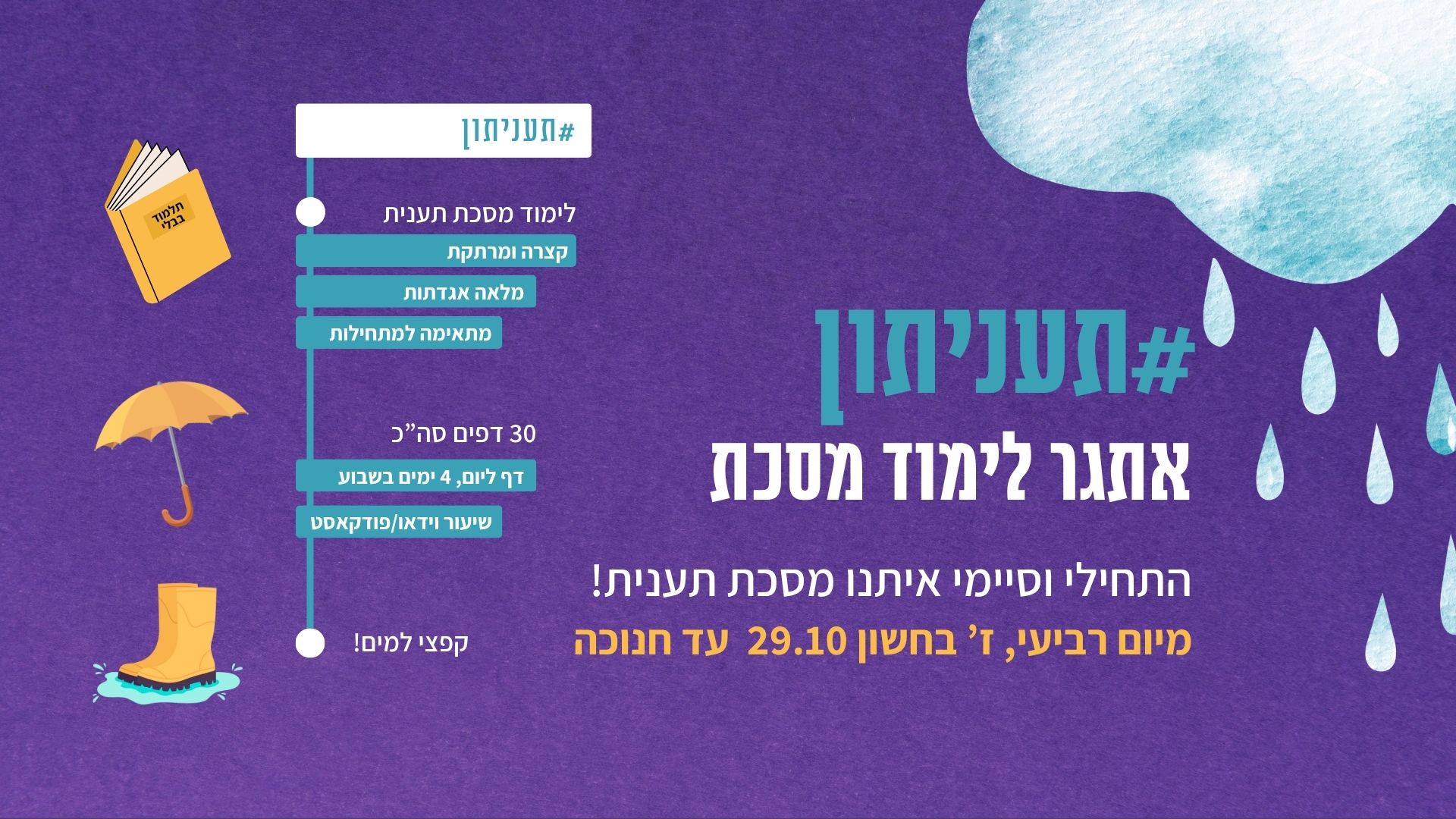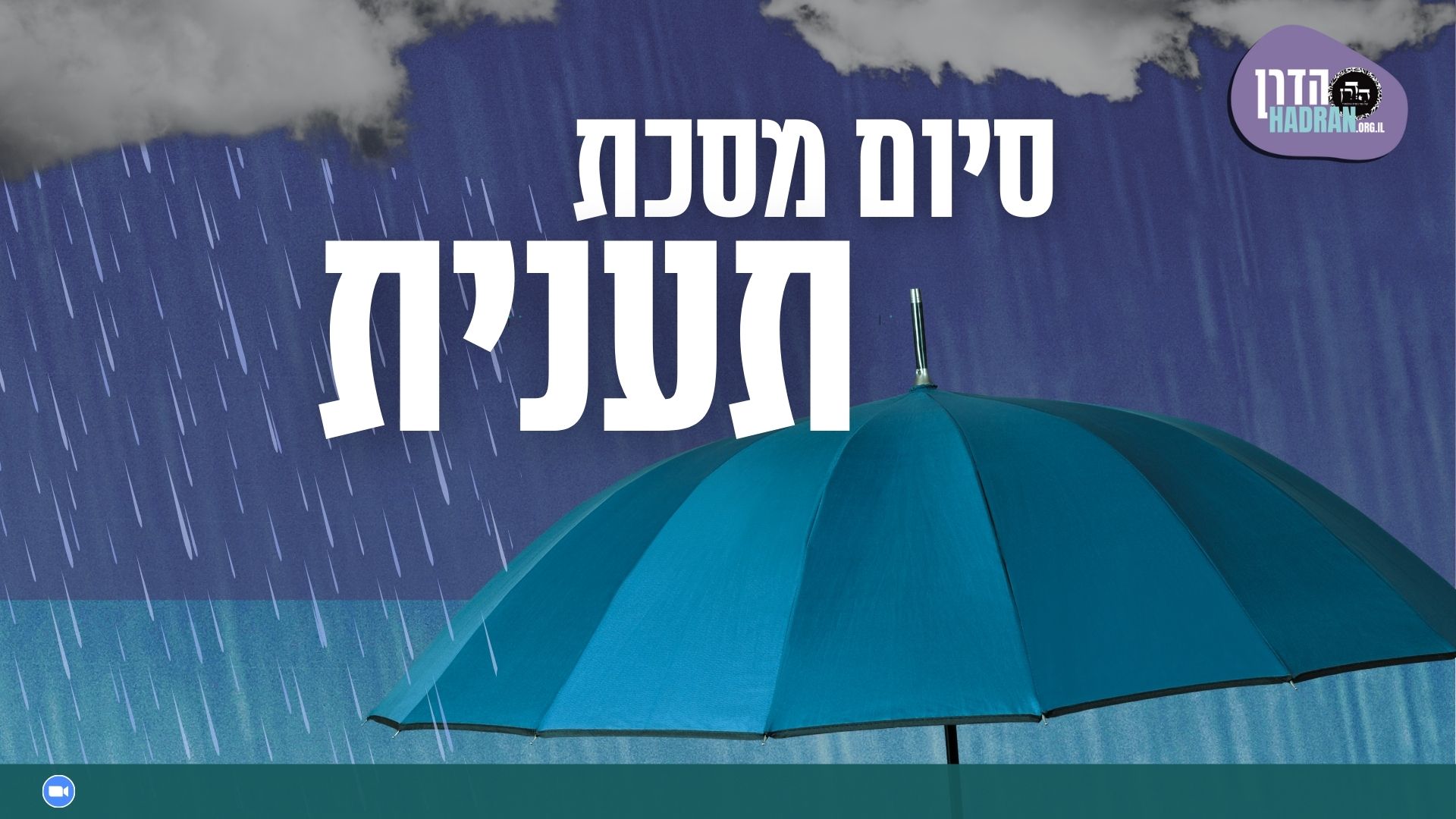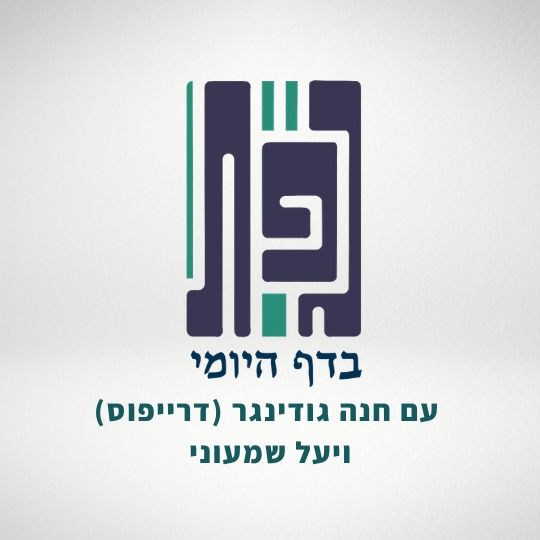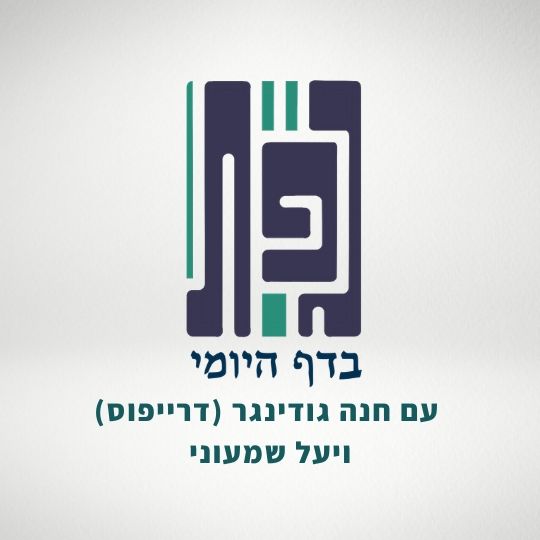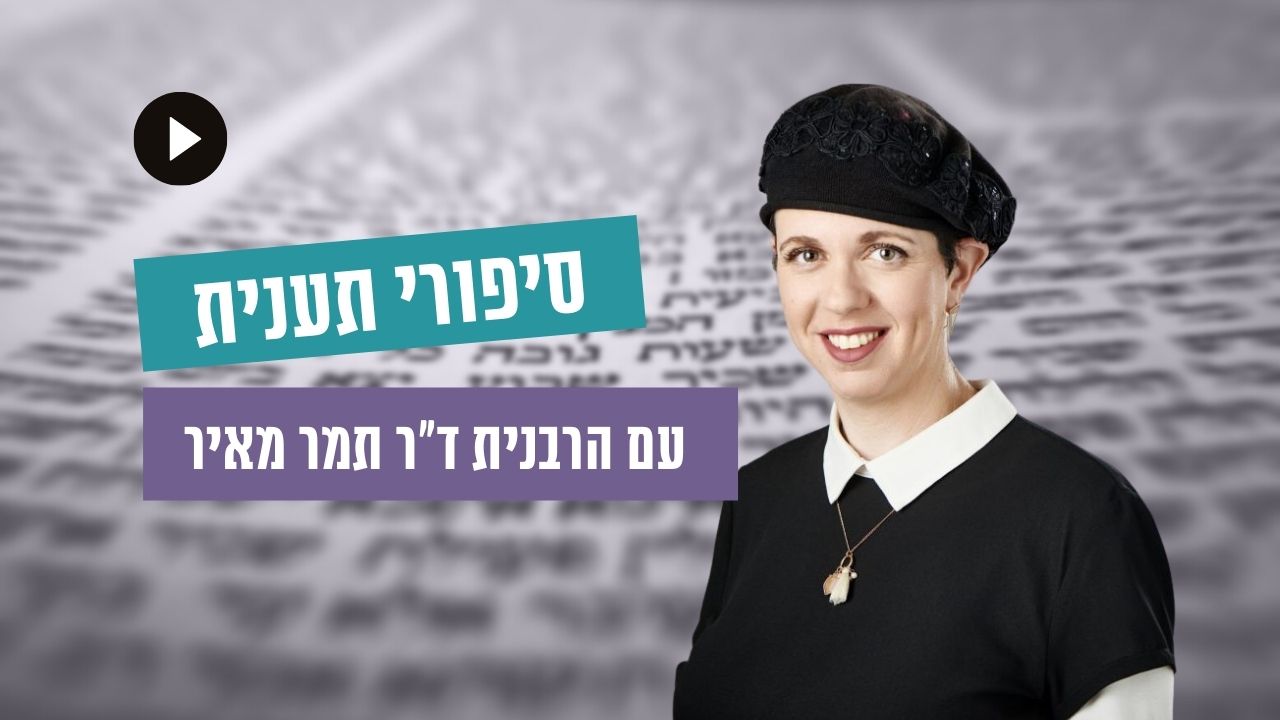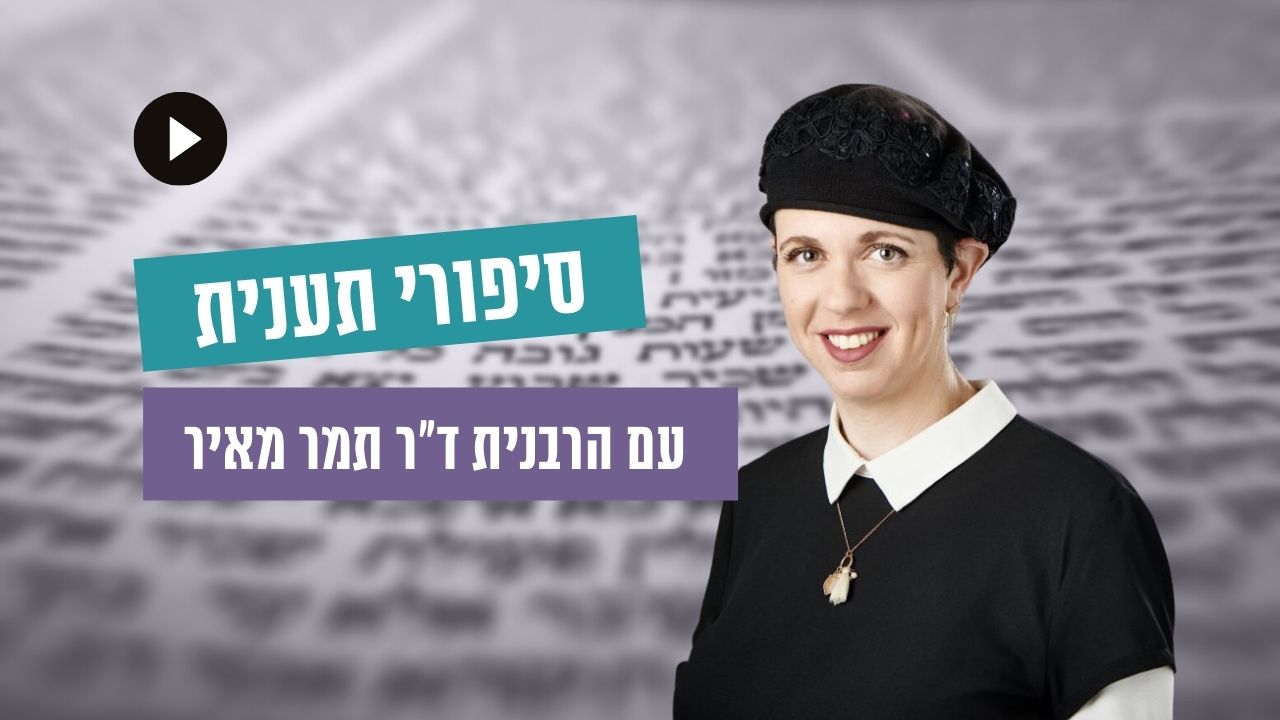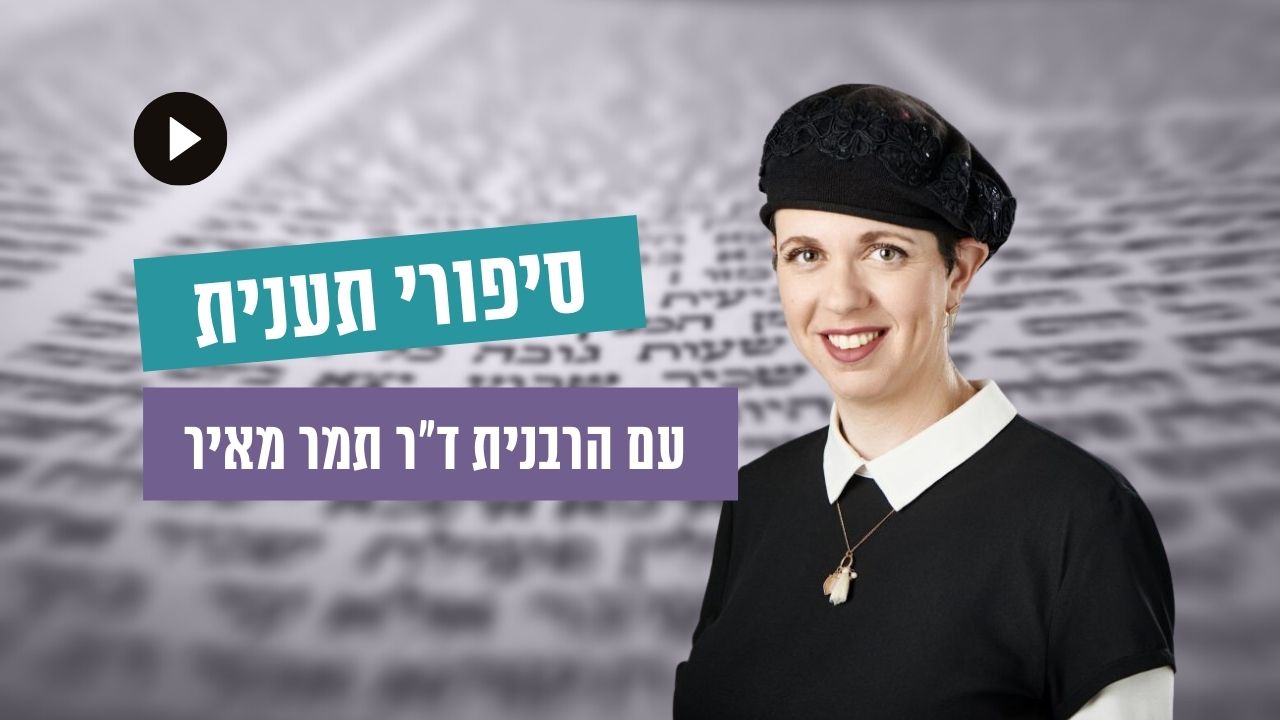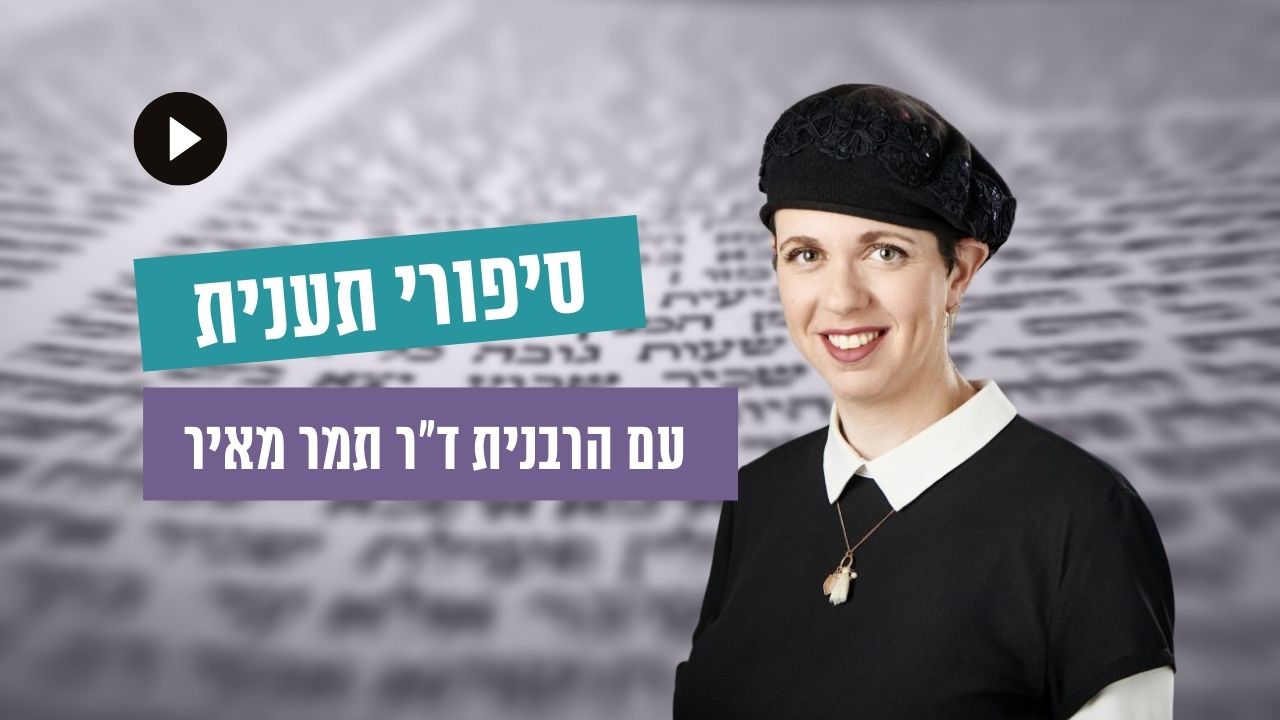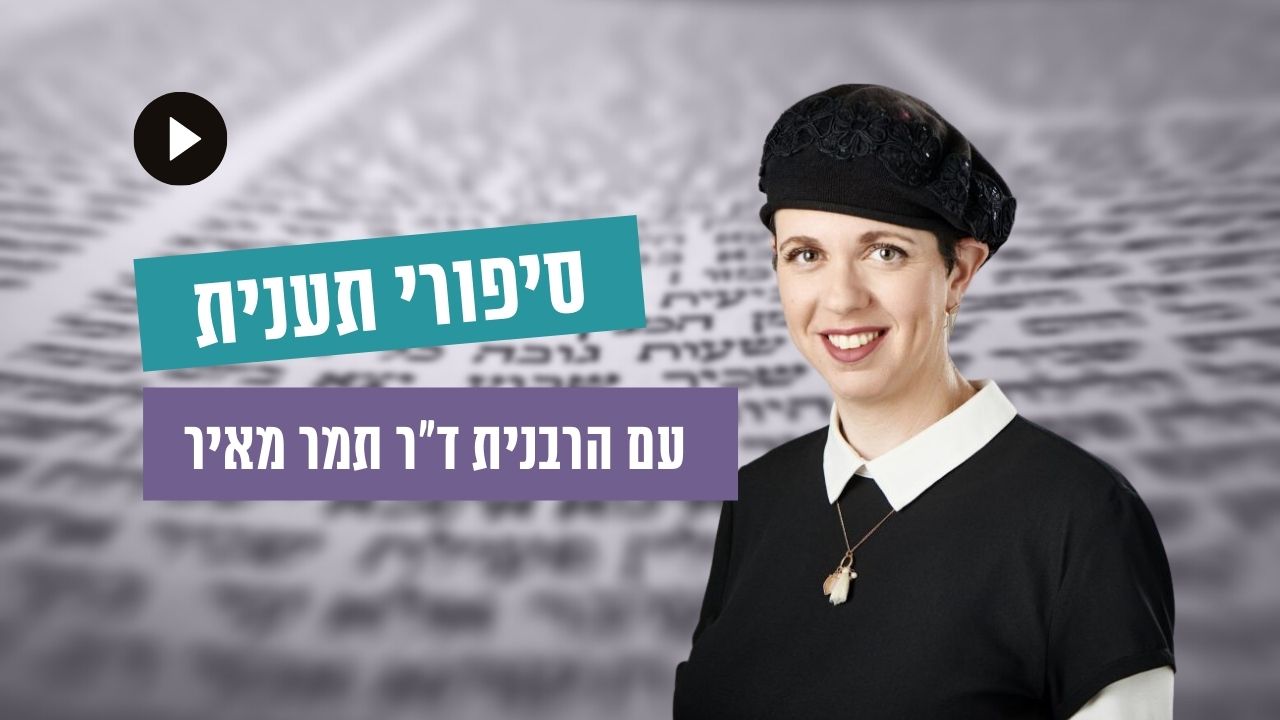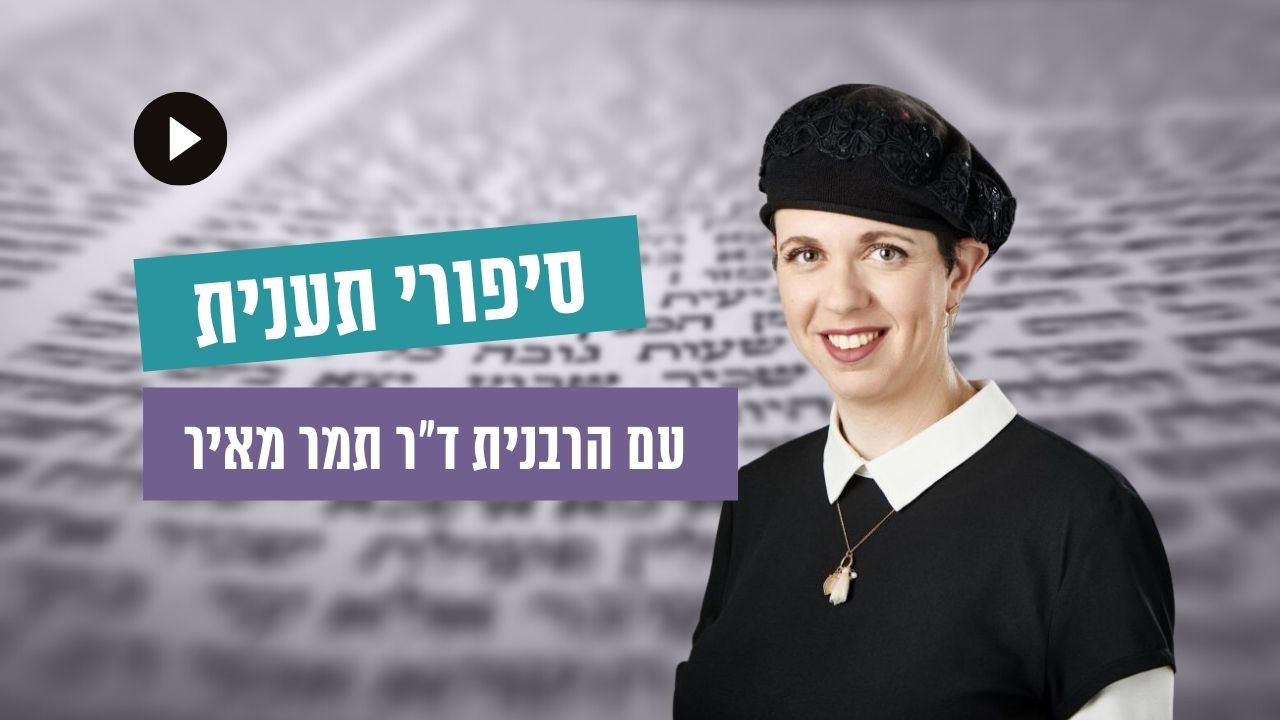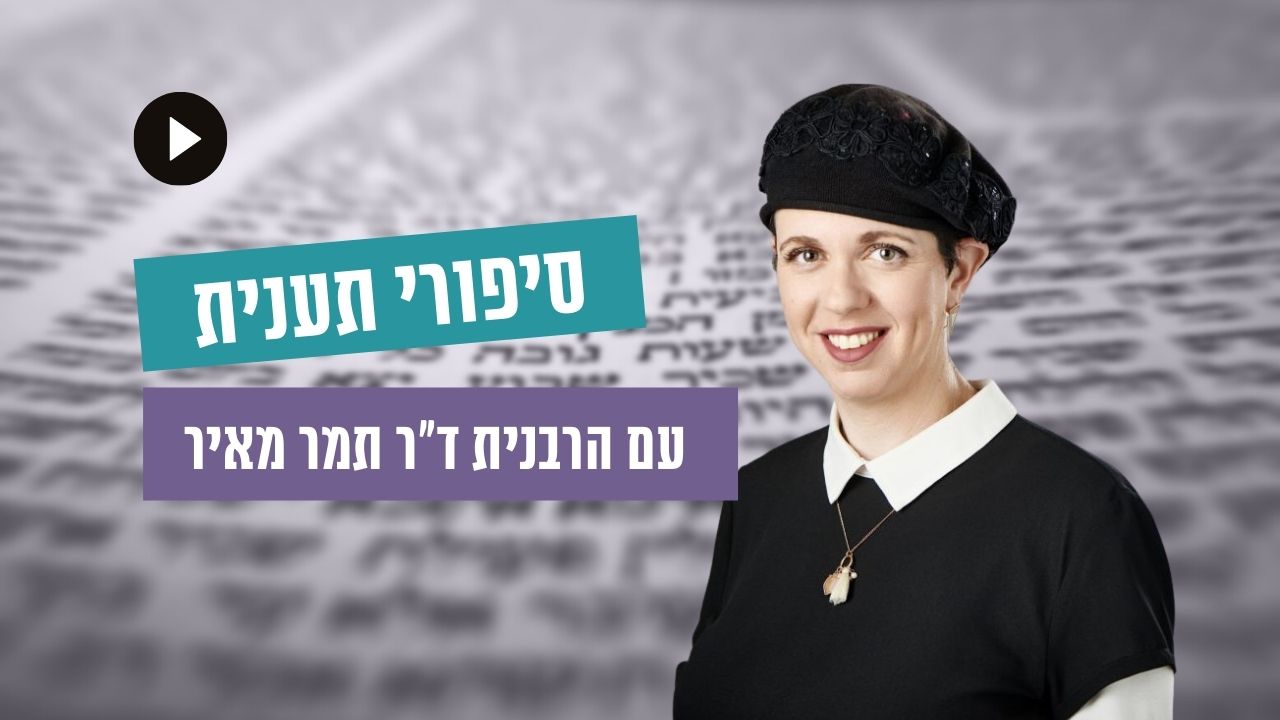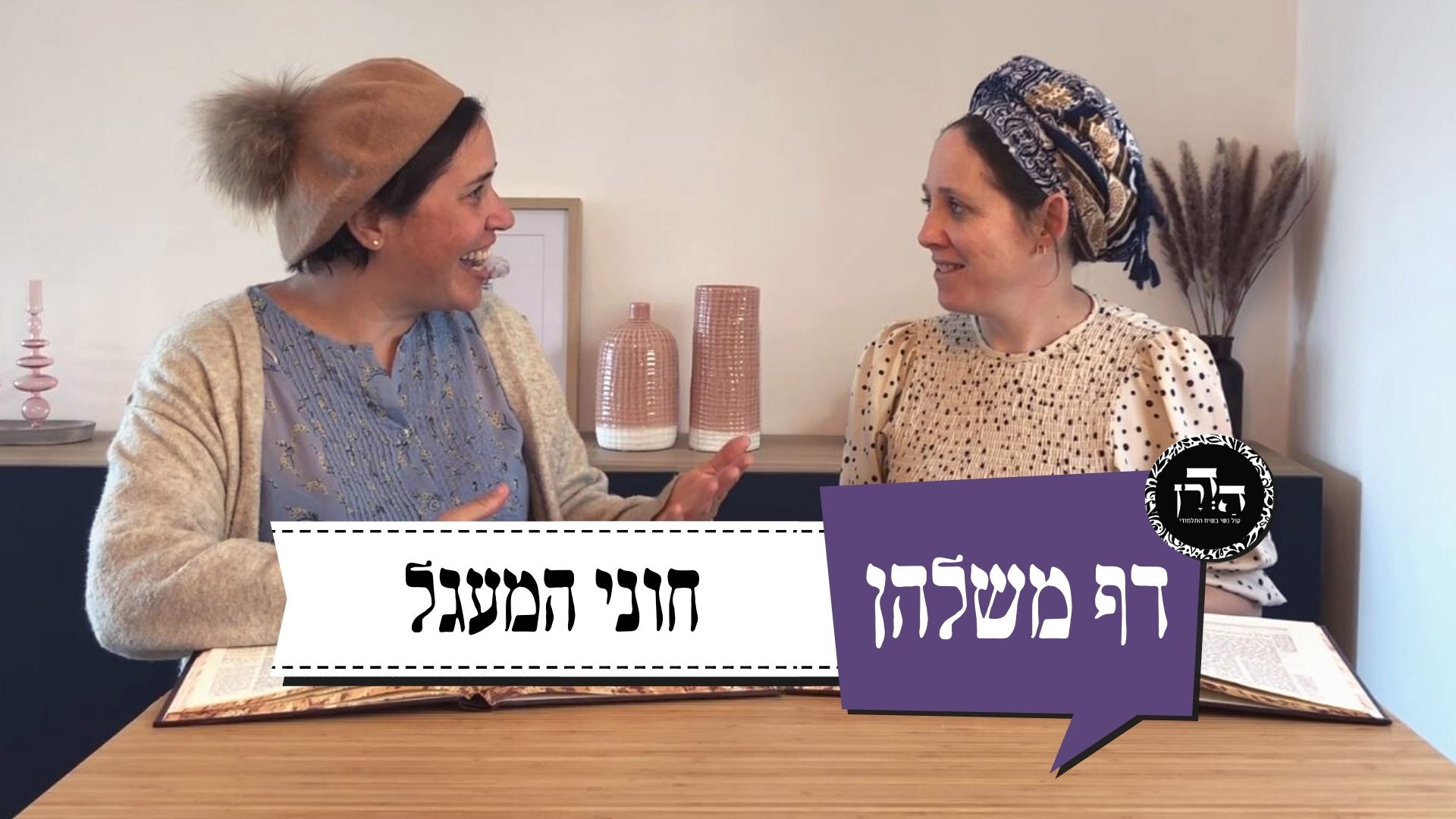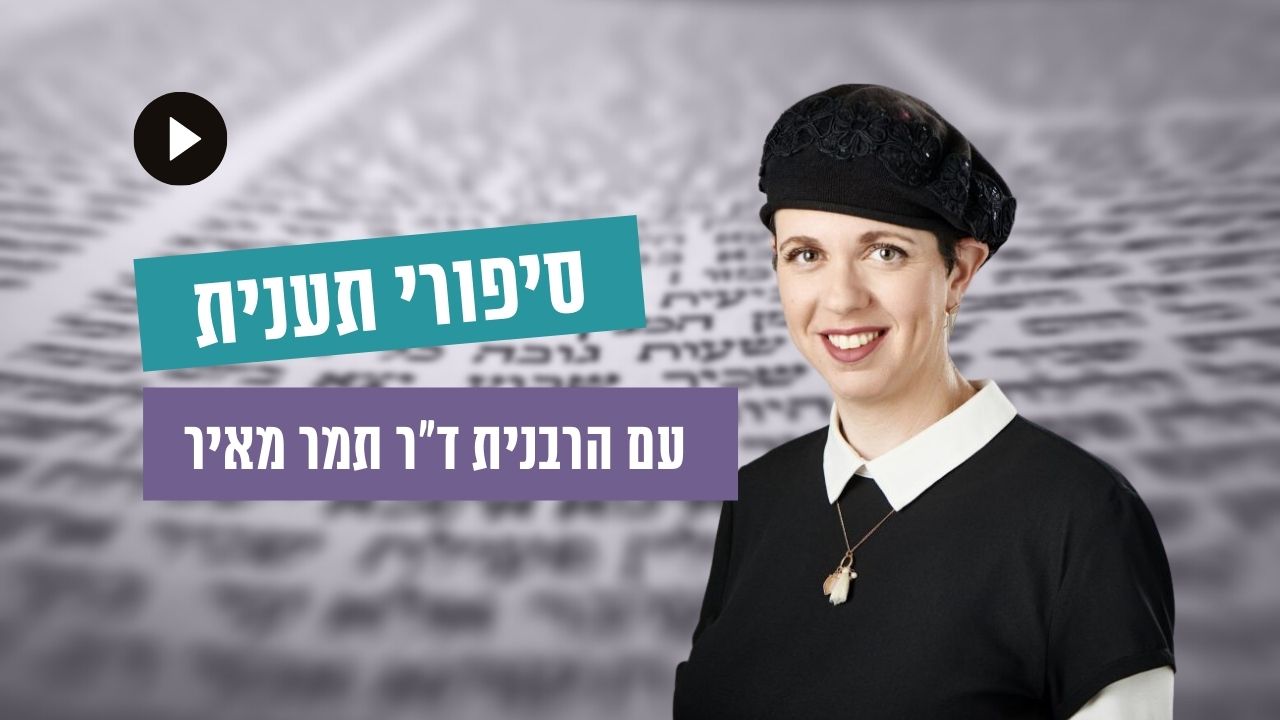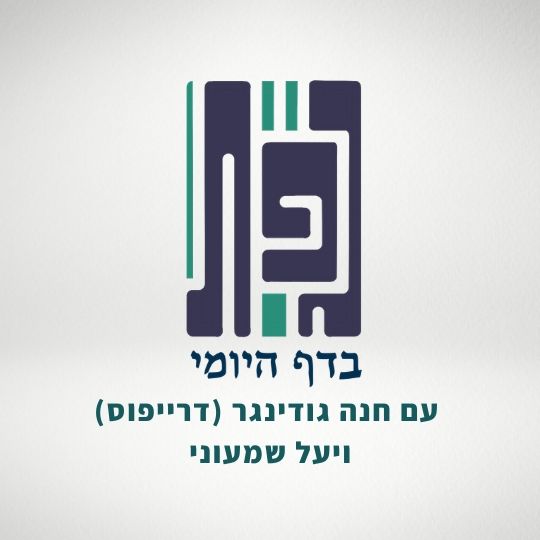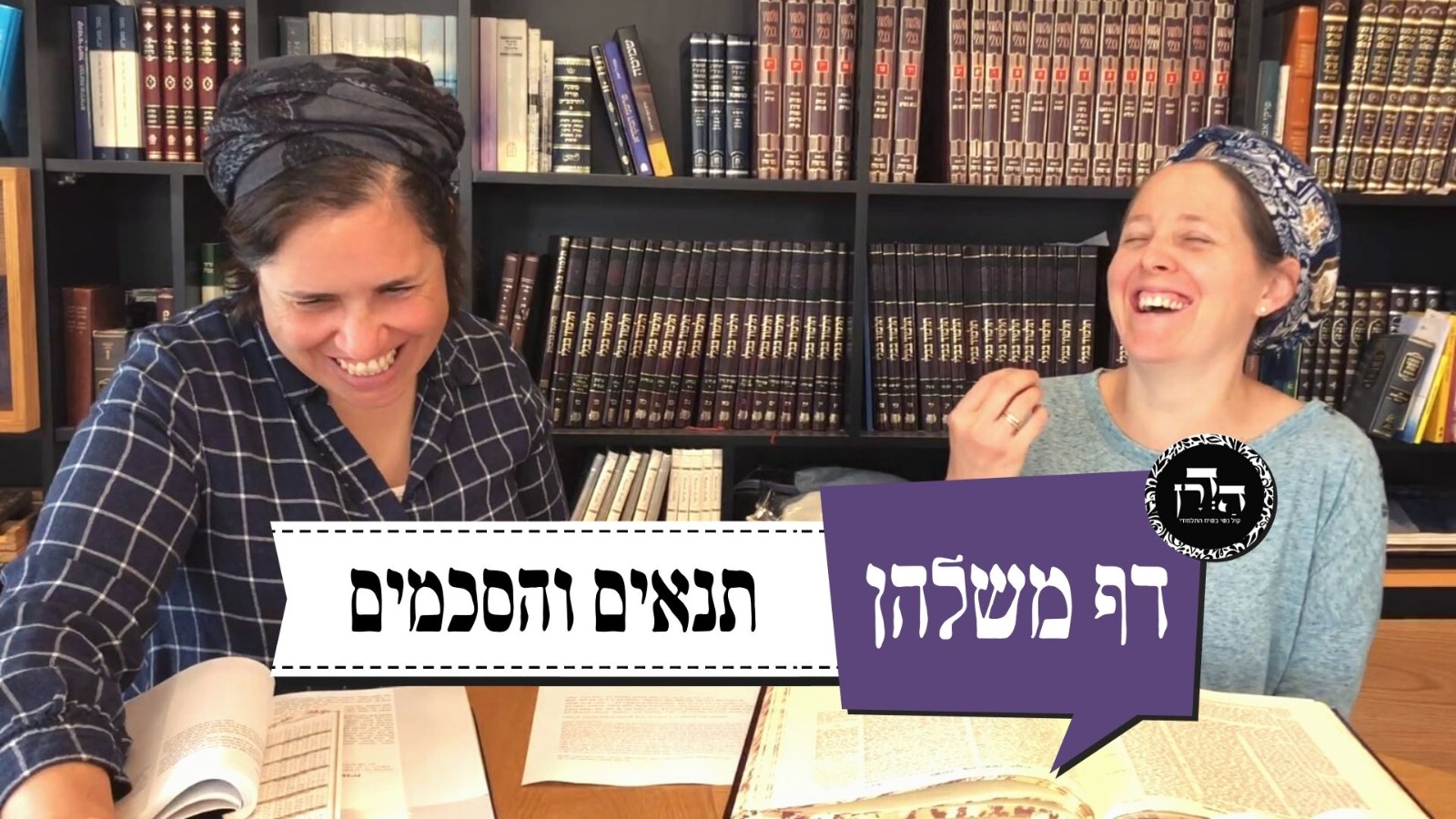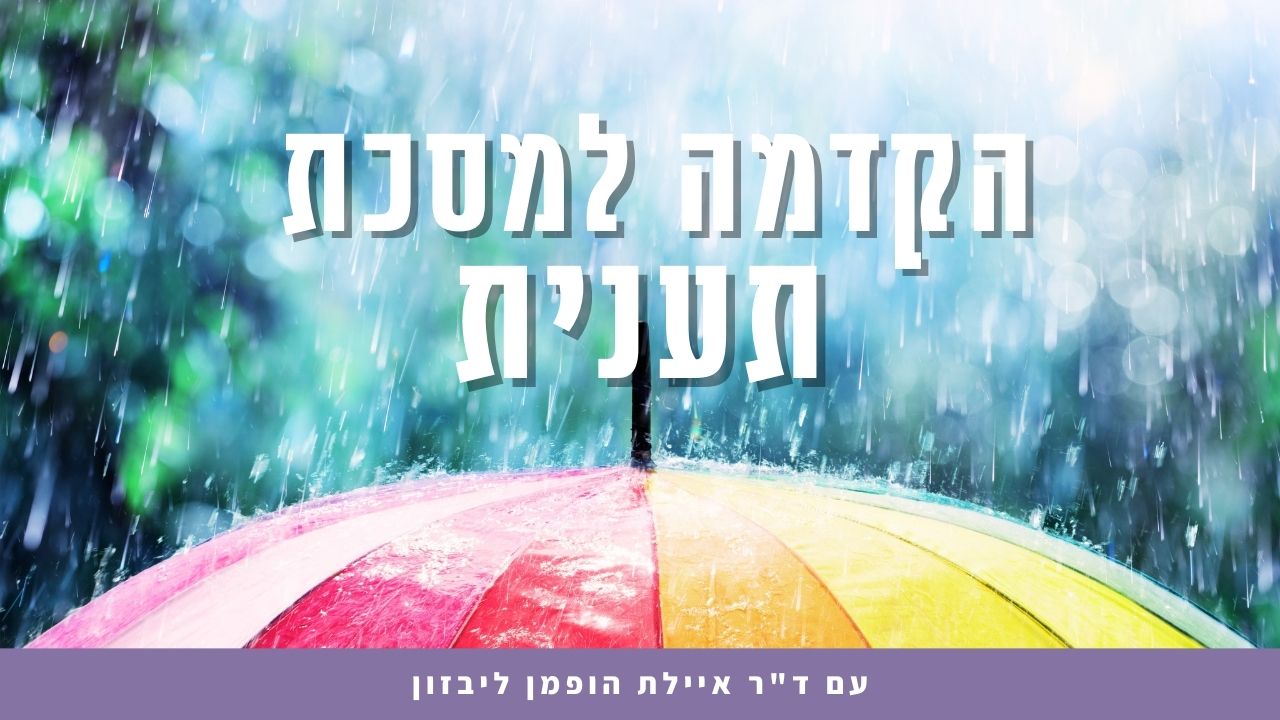תענית כב
לְצַפְרָא, כַּרְכִינְהוּ וְשַׁקְלִינְהוּ וְקָמוּ וּנְפַקוּ לְהוּ לְשׁוּקָא וְאַשְׁכְּחִינְהוּ. אֲמַרוּ לֵיהּ: לְשַׁיְּימֵיהּ מָר הֵיכִי שָׁווּ. אֲמַר לְהוּ: הָכִי וְהָכִי. אֲמַרוּ לֵיהּ: וְדִלְמָא שָׁווּ טְפֵי? אֲמַר לְהוּ: בְּהָכִי (שַׁקְלִינְהוּ) [שְׁקַלִי לְהוּ]. אֲמַרוּ לֵיהּ: דִּידָךְ נִיהוּ וְשַׁקְלִינְהוּ מִינָּךְ.
In the morning, the Sages rolled up these rugs and took them, and they arose and went out to the market with them. And when Abba found them, the Sages said to him: Let the Master appraise these rugs, how much they are worth. He said to them: Their value is such and such. They said to him: But perhaps they are worth more. He said to them: This is what I paid for them. They said to him: The rugs are yours and we took them from you.
אֲמַרוּ לֵיהּ: בְּמָטוּתָא מִינָּךְ בְּמַאי חֲשַׁדְתִּינַּן? אֲמַר לְהוּ: אָמֵינָא, פִּדְיוֹן שְׁבוּיִים אִיקְּלַע לְהוּ לְרַבָּנַן, וְאִכְּסִיפוּ לְמֵימַר לִי. אֲמַרוּ לֵיהּ: הַשְׁתָּא נִשְׁקְלִינְהוּ מָר! אֲמַר לְהוּ: מֵהָהוּא שַׁעְתָּא אַסַּחְתִּינְהוּ מִדַּעְתַּאי לִצְדָקָה.
After explaining the reason for their actions, the Sages said to him: Please tell us, what did you suspect of us? You knew that we had taken your rugs, and yet you did not say anything. He said to them: I said to myself, certainly an unexpected opportunity for a ransom of prisoners became available for the Sages, and they required immediate funds, but they were too embarrassed to say so to me or to ask for money. Instead, they took the rugs. The Sages said to him: Now that we have explained the situation, let the Master take back the rugs. He said to them: From that moment when I realized they were missing, I put them out of my mind and consigned them for charity. As far as I am concerned, they are already designated for that purpose, and I cannot take them back.
הֲוָה קָא חָלְשָׁא דַּעְתֵּיהּ דְּרָבָא מִשּׁוּם דְּאַבָּיֵי, אֲמַרוּ לֵיהּ: מִסָּתְיָיךְ דְּקָא מַגְּנַיתְּ אַכּוּלֵּהּ כַּרְכָא.
Rava was distressed due to the fact that Abaye received greetings from Heaven every Shabbat eve, while Rava received such greetings only once a year, on Yom Kippur eve, as stated above. They said to him: Be content that through your merit you protect your entire city.
רַבִּי בְּרוֹקָא חוֹזָאָה הֲוָה שְׁכִיחַ בְּשׁוּקָא דְּבֵי לָפָט. הֲוָה שְׁכִיחַ אֵלִיָּהוּ גַּבֵּיהּ, אֲמַר לֵיהּ: אִיכָּא בְּהַאי שׁוּקָא בַּר עָלְמָא דְּאָתֵי? אֲמַר לֵיהּ: לָא. אַדְּהָכִי וְהָכִי חֲזָא לְהָהוּא גַּבְרָא דַּהֲוָה סָיֵים מְסָאנֵי אוּכָּמֵי וְלָא רְמֵי חוּטָא דִתְכֵלְתָּא בִּגְלִימֵיהּ. אֲמַר לֵיהּ: הַאי בַּר עָלְמָא דְּאָתֵי הוּא.
§ The Gemara relates another story about the righteousness of common people. Rabbi Beroka Ḥoza’a was often found in the market of Bei Lefet, and Elijah the Prophet would often appear to him. Once Rabbi Beroka said to Elijah: Of all the people who come here, is there anyone in this market worthy of the World-to-Come? He said to him: No. In the meantime, Rabbi Beroka saw a man who was wearing black shoes, contrary to Jewish custom, and who did not place the sky-blue, dyed thread of ritual fringes on his garment. Elijah said to Rabbi Beroka: That man is worthy of the World-to-Come.
רְהַט בָּתְרֵיהּ, אֲמַר לֵיהּ: מַאי עוֹבָדָךְ? אֲמַר לֵיהּ: זִיל הָאִידָּנָא, וְתָא לִמְחַר. לִמְחַר אֲמַר לֵיהּ: מַאי עוֹבָדָךְ? אֲמַר לֵיהּ: זַנְדּוּקְנָא אֲנָא, וְאָסַרְנָא גַּבְרֵי לְחוֹד וְנָשֵׁי לְחוֹד, וְרָמֵינָא פּוּרְיַיאי בֵּין הָנֵי לְהָנֵי כִּי הֵיכִי דְּלָא לֵיתוֹ לִידֵי אִיסּוּרָא. כִּי חָזֵינָא בַּת יִשְׂרָאֵל דְּיָהֲבִי נׇכְרִים עֲלַהּ עֵינַיְיהוּ, מָסַרְנָא נַפְשַׁאי וּמַצֵּילְנָא לַהּ. יוֹמָא חַד הֲווֹת נַעֲרָה מְאוֹרָסָה גַּבַּן דִּיהַבוּ בָּהּ נׇכְרִים עֵינַיְיהוּ, שְׁקַלִי דּוּרְדְּיָיא דְּחַמְרָא וּשְׁדַאי לַהּ בְּשִׁיפּוּלַהּ, וַאֲמַרִי: דַּשְׁתָּנָא הִיא.
Rabbi Beroka ran after the man and said to him: What is your occupation? The man said to him: Go away now, as I have no time, but come back tomorrow and we will talk. The next day, Rabbi Beroka arrived and again said to him: What is your occupation? The man said to him: I am a prison guard [zandukana], and I imprison the men separately and the women separately, and I place my bed between them so that they will not come to transgression. When I see a Jewish woman upon whom gentiles have set their eyes, I risk my life to save her. One day, there was a betrothed young woman among us, upon whom the gentiles had set their eyes. I took dregs [durdayya] of red wine and threw them on the lower part of her dress, and I said: She is menstruating [dastana], so that they would leave her alone.
אֲמַר לֵיהּ: מַאי טַעְמָא לֵית לָךְ חוּטֵי, וּרְמֵית מְסָאנֵי אוּכָּמֵי? אֲמַר לֵיהּ: עָיֵילְנָא וְנָפֵיקְנָא בֵּינֵי נׇכְרִים, כִּי הֵיכִי דְּלָא לִידְּעוּ דִּיהוּדָאָה אֲנָא. כִּי הָווּ גָּזְרִי גְּזֵירְתָּא, מוֹדַעְנָא לְהוּ לְרַבָּנַן וּבָעוּ רַחֲמֵי וּמְבַטְּלִי לִגְזֵירְתַּיְיהוּ. וּמַאי טַעְמָא כִּי אָמֵינָא לָךְ אֲנָא מַאי עוֹבָדָךְ, וַאֲמַרְתְּ לִי: זִיל הָאִידָּנָא וְתָא לִמְחַר? אֲמַר לֵיהּ: בְּהַהִיא שַׁעְתָּא גָּזְרִי גְּזֵירְתָּא, וְאָמֵינָא: בְּרֵישָׁא אֵיזִיל וְאֶשְׁמְעַ[הּ], וְאֶשְׁלַח לְהוּ לְרַבָּנַן דְּלִבְעוֹ רַחֲמֵי עֲלַהּ דְּמִילְּתָא.
Rabbi Beroka said to him: What is the reason that you do not have threads of ritual fringes, and why do you wear black shoes? The man said to him: Since I come and go among gentiles, I dress this way so that they will not know that I am a Jew. When they issue a decree, I inform the Sages, and they pray for mercy and annul the decree. Rabbi Beroka further inquired: And what is the reason that when I said to you: What is your occupation, you said to me: Go away now but come tomorrow? The man said to him: At that moment, they had just issued a decree, and I said to myself: First I must go and inform the Sages, so that they will pray for mercy over this matter.
אַדְּהָכִי וְהָכִי אֲתוֹ הָנָךְ תְּרֵי אַחֵי. אֲמַר לֵיהּ: הָנָךְ נָמֵי בְּנֵי עָלְמָא דְּאָתֵי נִינְהוּ. אֲזַל לְגַבַּיְיהוּ, אֲמַר לְהוּ: מַאי עוֹבָדַיְיכוּ? אֲמַרוּ לֵיהּ: אִינָשֵׁי בָּדוֹחֵי אֲנַן, מְבַדְּחִינַן עֲצִיבֵי. אִי נָמֵי, כִּי חָזֵינַן בֵּי תְרֵי דְּאִית לְהוּ תִּיגְרָא בַּהֲדַיְיהוּ, טָרְחִינַן וְעָבְדִינַן לְהוּ שְׁלָמָא.
In the meantime, two brothers came to the marketplace. Elijah said to Rabbi Beroka: These two also have a share in the World-to-Come. Rabbi Beroka went over to the men and said to them: What is your occupation? They said to him: We are jesters, and we cheer up the depressed. Alternatively, when we see two people who have a quarrel between them, we strive to make peace. It is said that for this behavior one enjoys the profits of his actions in this world, and yet his reward is not diminished in the World-to-Come.
עַל אֵלּוּ מַתְרִיעִין בְּכׇל מָקוֹם כּוּ׳. תָּנוּ רַבָּנַן, עַל אֵלּוּ מַתְרִיעִין בְּכׇל מָקוֹם: עַל הַשִּׁדָּפוֹן, וְעַל הַיֵּרָקוֹן, וְעַל אַרְבֶּה וְחָסִיל, וְעַל חַיָּה רָעָה. רַבִּי עֲקִיבָא אוֹמֵר: עַל הַשִּׁדָּפוֹן וְעַל הַיֵּרָקוֹן בְּכׇל שֶׁהוּא. אַרְבֶּה וְחָסִיל, אֲפִילּוּ לֹא נִרְאָה בְּאֶרֶץ יִשְׂרָאֵל אֶלָּא כָּנָף אֶחָד — מַתְרִיעִין עֲלֵיהֶן.
§ The mishna states: For the following calamities they sound the alarm in every place. The Sages taught: For the following calamities they sound the alarm in every place: For blight, for mildew, for locusts, for caterpillars, a type of locust that comes in large swarms and descends upon a certain place, and for dangerous beasts. Rabbi Akiva says: For blight and mildew they sound the alarm over any amount. For locusts, and for caterpillars, even if only a single wing of one of these pests was seen in all of Eretz Yisrael, they sound the alarm over them, as this is a sign that more are on their way.
וְעַל חַיָּה וְכוּ׳. תָּנוּ רַבָּנַן: חַיָּה רָעָה שֶׁאָמְרוּ, בִּזְמַן שֶׁהִיא מְשׁוּלַּחַת — מַתְרִיעִין עָלֶיהָ, אֵינָהּ מְשׁוּלַּחַת — אֵין מַתְרִיעִין עָלֶיהָ. אֵי זוֹ הִיא מְשׁוּלַּחַת וְאֵי זוֹ הִיא שֶׁאֵינָהּ מְשׁוּלַּחַת? נִרְאֵית בָּעִיר — מְשׁוּלַּחַת, בַּשָּׂדֶה — אֵינָהּ מְשׁוּלַּחַת. בַּיּוֹם — מְשׁוּלַּחַת, בַּלַּיְלָה — אֵינָהּ מְשׁוּלַּחַת.
The mishna taught that they sound the alarm for dangerous beasts that have invaded a town. The Sages taught in a baraita: The term dangerous beasts that they said is referring to a situation when there is an abnormal outbreak of the animals in a populated area (see Leviticus 26:22). In this case, they sound the alarm over them. However, if it is not an outbreak, they do not sound the alarm over them. The Gemara elaborates: What is considered an outbreak and what is not an outbreak? If a dangerous beast is seen in the city, this is an outbreak. If it is seen in the field, where it is usually found, this is not an outbreak. If it is seen during the day, this is an outbreak. If it is seen at night, this is not an outbreak.
רָאֲתָה שְׁנֵי בְּנֵי אָדָם וְרָצְתָה אַחֲרֵיהֶן — מְשׁוּלַּחַת. נֶחְבֵּאת מִפְּנֵיהֶן — אֵינָהּ מְשׁוּלַּחַת. טָרְפָה שְׁנֵי בְּנֵי אָדָם וְאָכְלָה אֶחָד מֵהֶן — מְשׁוּלַּחַת. אָכְלָה שְׁנֵיהֶן — אֵינָהּ מְשׁוּלַּחַת. עָלְתָה לַגַּג וְנָטְלָה תִּינוֹק מֵעֲרִיסָה — מְשׁוּלַּחַת.
The baraita continues: If the beast saw two people and chased after them, this is an outbreak. If it hid from them, this is not an outbreak. If it tore apart two people and ate one of them, this is an outbreak, as it is clear that the animal did not attack merely due to hunger. If it ate both of them, this is not an outbreak, as the animal was evidently hungry and acted in accordance with its nature. If it climbed to the roof and took a baby from its cradle, this is an outbreak. This concludes the Gemara’s citation of the baraita.
הָא גּוּפַהּ קַשְׁיָא, אָמְרַתְּ: נִרְאֲתָה בָּעִיר — מְשׁוּלַּחַת; לָא שְׁנָא בַּיּוֹם וְלָא שְׁנָא בַּלַּיְלָה. וַהֲדַר אָמְרַתְּ: בַּיּוֹם — מְשׁוּלַּחַת, בַּלַּיְלָה — אֵינָהּ מְשׁוּלַּחַת!
The Gemara asks: This baraita is itself difficult. Initially, you said that if a dangerous beast is seen in the city, this is an outbreak, which indicates that it is no different whether it is seen by day and it is no different if it is seen at night. And then you said: If the animal is seen during the day, this is an outbreak; if it is seen at night, this is not an outbreak.
לָא קַשְׁיָא, הָכִי קָאָמַר: נִרְאֲתָה בָּעִיר בַּיּוֹם — מְשׁוּלַּחַת. בָּעִיר בַּלַּיְלָה — אֵינָהּ מְשׁוּלַּחַת. אִי נָמֵי בַּשָּׂדֶה, אֲפִילּוּ בַּיּוֹם — אֵינָהּ מְשׁוּלַּחַת. (בַּשָּׂדֶה, בַּלַּיְלָה — אֵינָהּ מְשׁוּלַּחַת).
The Gemara resolves this difficulty: This is not difficult, as this is what the baraita is saying: If it is seen in the city during the day, this is an outbreak; if it is seen in the city at night, this is not an outbreak. Alternatively, if it is seen in the field, even during the day, this is not an outbreak. If it is spotted in the field at night, this is certainly not an outbreak.
רָאֲתָה שְׁנֵי בְּנֵי אָדָם וְרָצְתָה אַחֲרֵיהֶן — מְשׁוּלַּחַת, הָא עוֹמֶדֶת — אֵינָהּ מְשׁוּלַּחַת. וַהֲדַר אָמְרַתְּ: נֶחְבֵּאת מִפְּנֵיהֶן — אֵינָהּ מְשׁוּלַּחַת, הָא עוֹמֶדֶת — מְשׁוּלַּחַת!
The Gemara inquires about another apparent contradiction: The baraita states that if the beast saw two people and chased after them, this is an outbreak. This indicates that if it stands but does not run away, this is not an outbreak. And then you said that if it hid from them, this is not an outbreak, from which it may be inferred that if it stands and does not run away, this is an outbreak.
לָא קַשְׁיָא: כָּאן — בְּשָׂדֶה הַסְּמוּכָה לַאֲגַם, כָּאן — בְּשָׂדֶה שֶׁאֵינָהּ סְמוּכָה לַאֲגַם.
The Gemara answers: This is not difficult, as the two sections of the baraita describe different situations. Here, where it is an outbreak, the beast is standing in a field near a marsh. It is natural for the animal to stand, for the beast knows that if people attempt to catch it, it can run into the marsh. Conversely, there, where it is not an outbreak, the beast is standing in a field that is not near a marsh. Since it has nowhere to run, standing demonstrates an unnatural lack of fear.
טָרְפָה שְׁנֵי בְּנֵי אָדָם כְּאֶחָד וְאָכְלָה אֶחָד מֵהֶן — מְשׁוּלַּחַת, שְׁנֵיהֶם — אֵינָהּ מְשׁוּלַּחַת. וְהָא אָמְרַתְּ אֲפִילּוּ רָצְתָה! אָמַר רַב פָּפָּא: כִּי תָּנֵי הָהִיא, בְּאַגְמָא.
The baraita taught that if the beast tore apart two people and ate one of them, this is an outbreak, but if it ate both of them this is not an outbreak. The Gemara asks: But didn’t you say that even if the animal merely chased after two people, this is an outbreak? Rav Pappa said: When that ruling of a beast that tore apart two people is taught, it is referring to an animal in a marsh. Since it is in its own habitat, it is natural for a territorial beast to attack.
גּוּפָא: עָלְתָה לַגַּג וְנָטְלָה תִּינוֹק מֵעֲרִיסָה — מְשׁוּלַּחַת. פְּשִׁיטָא! אָמַר רַב פָּפָּא: כְּכוּכֵי דְצַיָּידֵי.
The Gemara returns to the matter of the baraita itself. If a wild animal climbed to the roof and took a baby from its cradle, this is an outbreak. The Gemara asks: It is obvious that this animal is acting unnaturally. Why does the baraita mention this case? Rav Pappa said: The baraita is referring to the roof of a hunter’s hideout. Since this hut is in a wild area, one might have thought that it is natural for the beast to attack. Therefore, the baraita teaches us that this is still considered an outbreak.
עַל הַחֶרֶב וְכוּ׳. תָּנוּ רַבָּנַן: חֶרֶב שֶׁאָמְרוּ, אֵינוֹ צָרִיךְ לוֹמַר חֶרֶב שֶׁאֵינוֹ שֶׁל שָׁלוֹם, אֶלָּא אֲפִילּוּ חֶרֶב שֶׁל שָׁלוֹם. שֶׁאֵין לְךָ חֶרֶב שֶׁל שָׁלוֹם יוֹתֵר מִפַּרְעֹה נְכֹה, וְאַף עַל פִּי כֵן נִכְשַׁל בָּהּ הַמֶּלֶךְ יֹאשִׁיָּהוּ, שֶׁנֶּאֱמַר:
§ The mishna taught that they sound the alarm for the sword. The Sages taught: With regard to the sword that they mentioned, it is not necessary to state that this includes a sword that is not of peace, i.e., an enemy army that has come to wage war against the Jews. Rather, even in a case of a sword of peace, when an army passes through with no intention of waging war against the Jews, but is merely on its way to another place, this is enough to obligate the court to sound the alarm, as you do not have a greater example of a sword of peace than Pharaoh Neco. He passed through Eretz Yisrael to wage war with Nebuchadnezzar, and nevertheless King Josiah stumbled in this matter, as it is stated:
״וַיִּשְׁלַח אֵלָיו מַלְאָכִים לֵאמֹר מַה לִּי וָלָךְ מֶלֶךְ יְהוּדָה לֹא עָלֶיךָ אַתָּה הַיּוֹם כִּי אֶל בֵּית מִלְחַמְתִּי וֵאלֹהִים אָמַר לְבַהֲלֵנִי חֲדַל לְךָ מֵאֱלֹהִים אֲשֶׁר עִמִּי וְאַל יַשְׁחִיתֶךָ״.
“But he sent ambassadors to him saying: What have I to do with you, king of Judea? I do not come against you this day, but against the house with which I am at war; and God has commanded me to make haste. Forbear from meddling with God, Who is with me, so that He will not destroy you” (II Chronicles 35:21). This clearly shows that Pharaoh Neco had no intention of engaging Josiah in battle.
מַאי: ״אֱלֹהִים אֲשֶׁר עִמִּי״? אָמַר רַב יְהוּדָה אָמַר רַב: זוֹ עֲבוֹדָה זָרָה. אֲמַר: הוֹאִיל וְקָא בָּטַח בַּעֲבוֹדָה זָרָה — יָכֵילְנָא לֵיהּ.
The Gemara asks: What is the meaning of the phrase “God, Who is with me”? Rav Yehuda said that Rav said: This is referring to Neco’s idolatry, which he brought for assistance. In other words, it is a secular reference and should be read as: The god that is with me, in my possession. Josiah said: Since he trusts in idolatry, I will be able to defeat him.
״וַיֹּרוּ הַיֹּרִים לַמֶּלֶךְ יֹאשִׁיָּהוּ וַיֹּאמֶר הַמֶּלֶךְ לַעֲבָדָיו הַעֲבִירוּנִי כִּי הׇחֳלֵיתִי מְאֹד״, מַאי ״כִּי הׇחֳלֵיתִי מְאֹד״? אָמַר רַב יְהוּדָה אָמַר רַב: מְלַמֵּד שֶׁעָשׂוּ כׇּל גּוּפוֹ כִּכְבָרָה.
With regard to Josiah’s battle with Pharaoh Neco, the verse states: “And the archers shot at King Josiah and the king said to his servants: Move me away, for I am seriously wounded” (II Chronicles 35:23). What is the meaning of the phrase: “For I am seriously wounded”? Rav Yehuda said that Rav said: This teaches that the Egyptian archers made his entire body like a sieve from the many arrows they shot at him.
אָמַר רַבִּי שְׁמוּאֵל בַּר נַחְמָנִי אָמַר רַבִּי יוֹנָתָן: מִפְּנֵי מָה נֶעֱנַשׁ יֹאשִׁיָּהוּ — מִפְּנֵי שֶׁהָיָה לוֹ לִימָּלֵךְ בְּיִרְמְיָהוּ וְלֹא נִמְלַךְ. מַאי דְּרַשׁ: ״וְחֶרֶב לֹא תַעֲבֹר בְּאַרְצְכֶם״,
Rabbi Shmuel bar Naḥmani said that Rabbi Yoḥanan said: For what reason was Josiah punished? Because he should have consulted with the prophet Jeremiah to find out if he should go to war, but he did not consult with him. How did Josiah interpret the verses of the Torah? How did they lead him to go to war? The verse states: “Neither shall a sword go through your land” (Leviticus 26:6).
מַאי ״חֶרֶב״? אִילֵּימָא חֶרֶב שֶׁאֵינָהּ שֶׁל שָׁלוֹם, וְהָכְתִיב: ״וְנָתַתִּי שָׁלוֹם בָּאָרֶץ״! אֶלָּא אֲפִילּוּ שֶׁל שָׁלוֹם. וְהוּא אֵינוֹ יוֹדֵעַ שֶׁאֵין דּוֹרוֹ דּוֹמֶה יָפֶה.
What is the meaning of the term: “Sword”? If we say that it is referring to a sword that is not of peace, but isn’t it written earlier in the same verse: “And I will give peace in the land”? Rather, the verse must mean that even a sword of peace shall not pass through the land, and Josiah sought to prevent this occurrence, in fulfillment of the blessing. But he did not know that his generation did not merit these blessings, and he would therefore not receive divine assistance in this regard.
כִּי הֲוָה נִיחָא נַפְשֵׁיהּ, חֲזָא יִרְמְיָהוּ שִׂפְווֹתֵיהּ דְּקָא מְרַחֲשָׁן, אָמַר: שֶׁמָּא חַס וְשָׁלוֹם מִילְּתָא דְּלָא מְהַגְּנָא אֲמַר אַגַּב צַעֲרֵיהּ. גְּחֵין וְשַׁמְעֵיהּ דְּקָא מַצְדֵּיק עֲלֵיהּ דִּינָא אַנַּפְשֵׁיהּ, אֲמַר: ״צַדִּיק הוּא ה׳ כִּי פִיהוּ מָרִיתִי״. פְּתַח עֲלֵיהּ הַהִיא שַׁעְתָּא: ״רוּחַ אַפֵּינוּ מְשִׁיחַ ה׳״.
The Gemara discusses Josiah’s deathbed reflections. When Josiah was dying, Jeremiah saw his lips moving. Jeremiah said: Perhaps, Heaven forbid, he is saying something improper and complaining about God’s judgment on account of his great distress. Jeremiah bent over and heard that he was justifying God’s judgment against himself. Josiah said: “The Lord is righteous, for I have rebelled against His word” (Lamentations 1:18). At that moment, Jeremiah began his eulogy for Josiah: “The breath of our nostrils, the anointed of the Lord, was trapped in their pits” (Lamentations 4:20).
מַעֲשֶׂה וְיָרְדוּ זְקֵנִים מִירוּשָׁלַיִם לְעָרֵיהֶם כּוּ׳. אִיבַּעְיָא לְהוּ: כִּמְלֹא תַנּוּר תְּבוּאָה, אוֹ דִלְמָא כִּמְלֹא תַנּוּר פַּת.
§ The mishna taught: An incident occurred in which Elders descended from Jerusalem to their cities and decreed a fast throughout the land because a small amount of blight was seen in the city of Ashkelon, enough to fill the mouth of an oven. A dilemma was raised before the Sages: Did they mean enough grain to fill an entire oven, or perhaps they meant enough grain to prepare bread to fill an oven? This is far less, as bread is stuck to the walls of the oven and does not fill its inner area.
תָּא שְׁמַע: כִּמְלֹא פִי תַנּוּר. וַעֲדַיִין תִּיבְּעֵי לְהוּ: כְּכִיסּוּיָא דְתַנּוּרָא, אוֹ דִלְמָא כִּי דָרָא דְרִיפְתָּא דְּהָדַר לֵיהּ לְפוּמָּא דְתַנּוּרָא? תֵּיקוּ.
The Gemara answers: Come and hear the phrase of the mishna: Enough to fill the mouth of an oven. This indicates that the bread referred to does not fill the entire oven, but rather covers the mouth of the oven. The Gemara further asks: And still you can raise this dilemma before them: Is the mishna referring to the bread of the cover of the oven? Perhaps it is referring to a row of bread around the mouth of the oven. No resolution was found, and the Gemara states that the dilemma shall stand unresolved.
וְעוֹד גָּזְרוּ תַּעֲנִית עַל שֶׁאָכְלוּ זְאֵבִים כּוּ׳. אָמַר עוּלָּא מִשּׁוּם רַבִּי שִׁמְעוֹן בֶּן יְהוֹצָדָק: מַעֲשֶׂה וּבָלְעוּ זְאֵבִים שְׁנֵי תִינוֹקוֹת וֶהֱקִיאוּם דֶּרֶךְ בֵּית הָרְעִי. וּבָא מַעֲשֶׂה לִפְנֵי חֲכָמִים, וְטִיהֲרוּ אֶת הַבָּשָׂר, וְטִמְּאוּ אֶת הָעֲצָמוֹת.
§ The mishna taught: And furthermore, they decreed a fast because wolves had eaten two children in Transjordan. Ulla said in the name of Rabbi Shimon ben Yehotzadak: An incident occurred in which wolves swallowed two children and excreted them. And the incident came before the Sages for a ruling. They were asked if the remains were ritually impure even after they had passed through the animal’s digestive tract, and they pronounced the flesh ritually pure, as it had been digested, but they pronounced the intact bones ritually impure.
עַל אֵלּוּ מַתְרִיעִין בְּשַׁבָּת כּוּ׳. תָּנוּ רַבָּנַן: עִיר שֶׁהִקִּיפוּהָ נׇכְרִים אוֹ נָהָר, וְאֶחָד סְפִינָה הַמִּיטָּרֶפֶת בַּיָּם, וְאֶחָד יָחִיד שֶׁנִּרְדָּף מִפְּנֵי נׇכְרִים אוֹ מִפְּנֵי לִסְטִין וּמִפְּנֵי רוּחַ רָעָה — מַתְרִיעִין בְּשַׁבָּת. וְעַל כּוּלָּן יָחִיד רַשַּׁאי לְסַגֵּף אֶת עַצְמוֹ בְּתַעֲנִית.
§ The mishna further taught: For the following calamities they sound the alarm even on Shabbat: For a city that is surrounded by gentile troops, for a place in danger of being flooded by a river that has swelled its banks, or for a ship tossed about at sea. The Sages taught: In the case of a city that is surrounded by gentile troops or a river that has swelled beyond its banks, and this also applies to both a ship tossed about at sea and an individual who is being pursued by gentiles, or by thieves, or by an evil spirit, which may lead him to harm himself, they sound the alarm even on Shabbat. And in all these cases, an individual is permitted to afflict himself by fasting to annul the evil decrees against him.
רַבִּי יוֹסֵי אוֹמֵר: אֵין הַיָּחִיד רַשַּׁאי לְסַגֵּף אֶת עַצְמוֹ בְּתַעֲנִית, שֶׁמָּא יִצְטָרֵךְ לַבְּרִיּוֹת וְאֵין הַבְּרִיּוֹת מְרַחֲמוֹת עָלָיו. אָמַר רַב יְהוּדָה אָמַר רַב: מַאי טַעְמָא דְּרַבִּי יוֹסֵי — דִּכְתִיב: ״וַיְהִי הָאָדָם לְנֶפֶשׁ חַיָּה״ — נְשָׁמָה שֶׁנָּתַתִּי בְּךָ הַחְיֵיה.
Rabbi Yosei says: An individual is not permitted to afflict himself by fasting, lest he become too weak to work and be beholden to other beings, and those beings will not have mercy on him. Rav Yehuda said that Rav said: What is the reason of Rabbi Yosei? It is as it is written: “And man became a living soul” (Genesis 2:7). Rabbi Yosei interprets this verse as a command: The soul I placed within you, preserve and sustain it.
שִׁמְעוֹן הַתִּימְנִי אוֹמֵר: אַף עַל הַדֶּבֶר כּוּ׳. אִיבַּעְיָא לְהוּ: לֹא הוֹדוּ לוֹ חֲכָמִים בַּשַּׁבָּת, אֲבָל בַּחוֹל — הוֹדוּ לוֹ, אוֹ דִלְמָא: לֹא הוֹדוּ לוֹ כְּלָל?
§ The mishna taught that Shimon the Timnite says: One may cry out on Shabbat even for pestilence, but the Rabbis did not agree with him. A dilemma was raised before the Sages: Does this mean that the Rabbis did not agree with him with regard to crying out in these cases on Shabbat, but if they occur on a weekday they agreed with him? Or perhaps they did not agree with him at all, as they maintain that one never cries out over pestilence.
תָּא שְׁמַע, דְּתַנְיָא: מַתְרִיעִין עַל הַדֶּבֶר בַּשַּׁבָּת, וְאֵין צָרִיךְ לוֹמַר בַּחוֹל. רַבִּי חָנָן בֶּן פִּיטוֹם תַּלְמִידוֹ שֶׁל רַבִּי עֲקִיבָא מִשּׁוּם רַבִּי עֲקִיבָא אוֹמֵר: אֵין מַתְרִיעִין עַל הַדֶּבֶר כׇּל עִיקָּר.
The Gemara answers: Come and hear, as it is taught in a baraita: One cries out for a plague of pestilence on Shabbat, and needless to say on weekdays. Rabbi Ḥanan ben Pitom, the student of Rabbi Akiva, says in the name of Rabbi Akiva: One does not cry out for pestilence at all. This opinion attributed to Rabbi Akiva is the ruling of the Rabbis in the mishna.
עַל כׇּל צָרָה שֶׁלֹּא תָּבוֹא עַל הַצִּבּוּר כּוּ׳. תָּנוּ רַבָּנַן: עַל כׇּל צָרָה שֶׁלֹּא תָּבוֹא עַל הַצִּבּוּר מַתְרִיעִין עָלֶיהָ, חוּץ מֵרוֹב גְּשָׁמִים. מַאי טַעְמָא? אָמַר רַבִּי יוֹחָנָן: לְפִי שֶׁאֵין מִתְפַּלְּלִין עַל רוֹב הַטּוֹבָה.
§ The mishna further states that they sound the alarm on account of any trouble that should not befall the community, a euphemism for trouble that may befall the community, except for an overabundance of rain. The Sages taught in a baraita: For any trouble that should not befall the community, they sound the alarm for it, except for an overabundance of rain. The Gemara asks: What is the reason for this? Rabbi Yoḥanan said: Because one does not pray over an excess of good. Since rain is generally good for the world, it is not appropriate to pray for it to stop, even when it falls in excess.
וְאָמַר רַבִּי יוֹחָנָן: מִנַּיִין שֶׁאֵין מִתְפַּלְּלִין עַל רוֹב הַטּוֹבָה, שֶׁנֶּאֱמַר: ״הָבִיאוּ אֶת כׇּל הַמַּעֲשֵׂר אֶל בֵּית הָאוֹצָר וְגוֹ׳״. מַאי ״עַד בְּלִי דָּי״? אָמַר רָמֵי בַּר רַב יוֹד: עַד שֶׁיִּבְלוּ שִׂפְתוֹתֵיכֶם מִלּוֹמַר ״דָּי״.
And Rabbi Yoḥanan said: From where is it derived that one does not pray over an excess of good? It is stated: “Bring the whole tithe into the storeroom, that there may be food in My house, and test Me now by this, said the Lord of hosts, if I will not open for you the windows of heaven, and pour out for you a blessing that there shall be more than sufficiency” (Malachi 3:10). What is the meaning of the phrase: “That there shall be more than sufficiency [ad beli dai]”? Rami bar Ḥama said: It means that the abundance will be so great that your lips will be worn out [yivlu], similar to the word beli, from saying enough [dai]. In other words, even when a blessing is delivered in gross excess, one should not pray for it to cease, as the verse blesses the people with an excess.
אָמַר רָמֵי בַּר רַב יוֹד: וּבַגּוֹלָה, מַתְרִיעִין עָלֶיהָ. תַּנְיָא נָמֵי הָכִי: שָׁנָה שֶׁגְּשָׁמֶיהָ מְרוּבִּין, אַנְשֵׁי מִשְׁמָר שׁוֹלְחִין לְאַנְשֵׁי מַעֲמָד: תְּנוּ עֵינֵיכֶם בַּאֲחֵיכֶם שֶׁבַּגּוֹלָה, שֶׁלֹּא יְהֵא בָּתֵּיהֶם קִבְרֵיהֶם.
Rami bar Rav Yud said: This is true in Eretz Yisrael, but in the Diaspora, i.e., Babylonia, they do sound the alarm over excessive rain. The reason is that Babylonia is in a low-lying region, where excessive rain poses a real danger. That opinion is also taught in a baraita: In a year whose rains are abundant, the members of the priestly watch in the Temple would send a message to the members of the non-priestly watch: Cast your eyes on your brothers in the Diaspora and have them in mind when you pray, so that their houses should not collapse from excessive rain and become their graves.
שָׁאֲלוּ אֶת רַבִּי אֱלִיעֶזֶר: עַד הֵיכָן גְּשָׁמִים יוֹרְדִין וְיִתְפַּלְּלוּ שֶׁלֹּא יֵרְדוּ? אָמַר לָהֶם: כְּדֵי שֶׁיַּעֲמוֹד אָדָם בְּקֶרֶן אָפֵל וִישַׁכְשֵׁךְ רַגְלָיו בַּמַּיִם. וְהָתַנְיָא: ״יָדָיו״! רַגְלָיו כְּיָדָיו קָאָמֵינָא.
They asked Rabbi Eliezer: How much rain must fall until they should pray that it should not fall anymore? He said to them by way of exaggeration: Enough rain must fall so that a person stands at the colossal cliff Keren Ophel and dips his feet in water. The Gemara asks: But isn’t it taught in a baraita that Rabbi Eliezer said he must be able to place his hands in water? Rabbi Eliezer could answer: When I said to you that he must be able to place his feet, I meant like his hands, i.e., the water must be high enough that he can dip both his hands and feet into the water with ease.
אָמַר רַבָּה בַּר בַּר חָנָה: לְדִידִי חַזְיָא לִי קֶרֶן אָפֵל, דְּקָם הַהוּא טַיָּיעָא כִּי רְכִיב גַּמְלָא וְנָקֵיט רוּמְחָא בִּידֵיהּ מִיתְחֲזֵי אִינִיבָא.
With regard to the height of this great cliff, Rabba bar bar Ḥana said: I personally saw Keren Ophel, and when I peered down I saw that an Arab was positioned below, and while riding a camel and holding a spear in his hand, he looked like a worm [iniva].
תָּנוּ רַבָּנַן: ״וְנָתַתִּי גִּשְׁמֵיכֶם בְּעִתָּם״, לֹא שִׁכּוֹרָה, וְלֹא צְמֵאָה, אֶלָּא בֵּינוֹנִית. שֶׁכׇּל זְמַן שֶׁהַגְּשָׁמִים מְרוּבִּין — מְטַשְׁטְשִׁין אֶת הָאָרֶץ וְאֵינָהּ מוֹצִיאָהּ פֵּירוֹת. דָּבָר אַחֵר:
The Sages taught: “Then I will give your rains in their season” (Leviticus 26:4). This means that the earth will be neither drunk nor thirsty; rather, a moderate amount of rain will fall. For as long as the rains are abundant, they muddy the soil of the land, and it does not give out its produce. Alternatively,

